Accelerating Discovery: Killam Accelerator Research Fellowship Lectures 2023
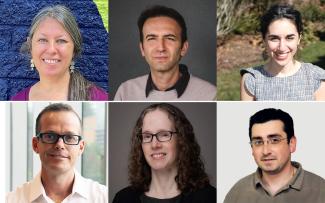
Each year, UBC’s Killam Accelerator Research Fellowships (KARF) support six exceptional early career researchers to pursue research projects with the potential for significant impact in their field of study.
Join us over two special events to hear how the inaugural cohort of KARF recipients, funded in 2020, have advanced their research and scholarship.
Lectures cover a diverse range of areas: from biblical studies to software engineering; from molecular construction to computer vision; and from forest restoration to understanding the role of chronic inflammation in health conditions and aging.
Thursday, May 4, 2023
In person, at Coach House, Green College
6201 Cecil Green Park Road
Vancouver BC V6T 1Z1
2:30pm - doors open
3:00pm - lecture presentations
4:30pm - 5:30pm - reception
Registration for the May 4 event has now closed.
Presenters:
- Dr. Jeanine Rhemtulla
Forest and Conservation Sciences
UBC Vancouver - Dr. Ali Mesbah
Electrical & Computer Engineering
UBC Vancouver - Dr. Sara Milstein
Ancient Mediterranean and Near Eastern Studies
UBC Vancouver
Speaker Bios and Presentation Details
Dr. Jeanine Rhemtulla
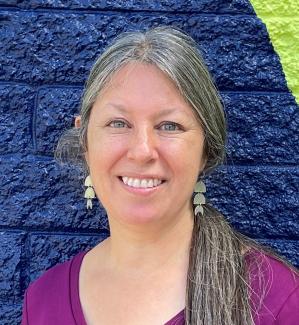
Jeanine Rhemtulla is an Associate Professor in the Department of Forest and Conservation Sciences. She directs the Landscapes & Livelihoods Lab, which focuses on how to manage and restore landscapes to increase biodiversity, ecosystem function, and benefits to local communities. She has conducted interdisciplinary research on four continents in collaboration with wonderful graduate students, local communities, NGOs, and government ministries. Her most recent work assesses how ambitious global restoration targets can achieve multiple ecological and social goals in a just and equitable way.
Around the world, governments are making ambitious commitments to tree planting as a natural climate solution that also increases biodiversity and benefits to local communities, including through the Trillion Trees Initiative and the UN Decade on Ecosystem Restoration. But where will these trees be planted, who decides, and can these projects actually achieve all of the promised outcomes? Join Jeanine Rhemtulla to hear about national restoration initiatives around the world, their accomplishments and challenges, and how we can combine ecological and social approaches to design forest restoration projects that work for nature and people.
Dr. Ali Mesbah
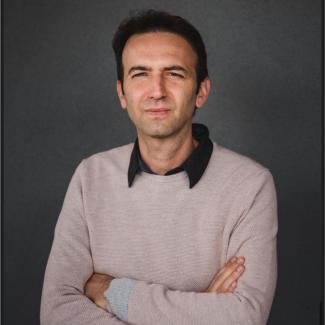
Ali Mesbah is a Professor in the Department of Electrical and Computer Engineering at UBC. His research focuses on solving some of the most pressing challenges in software engineering including automated error detection and repair. He has received numerous awards for his research achievements, including a Killam Accelerator Research Fellowship (2020), a Killam Faculty Research Prize (2019), an NSERC DAS, and numerous Distinguished and Best Paper Awards. Dr. Mesbah is on the steering committee of the UBC Research Excellence Cluster on Trustworthy ML, is an Associate Editor of the IEEE Transactions on Software Engineering and serves on program committees of several flagship conferences in software engineering.
His research achievements revolve around devising intelligent techniques for automatically detecting and fixing software errors through a combination of software analysis and machine learning using historical developer failures and their fixes.
Dr. Sara Milstein
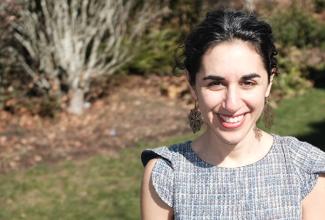
Sara Milstein is an Associate Professor of Hebrew Bible and Ancient Near Eastern Studies in the Department of Ancient Mediterranean and Near Eastern Studies. She is the author of two award-winning books: Making a Case: The Practical Roots of Biblical Law (Oxford University Press, 2021); and Tracking the Master Scribe: Revision through Introduction in Biblical and Mesopotamian Literature (Oxford University Press, 2016). Dr. Milstein is the recipient of multiple fellowships from the American Council of Learned Societies and the Memorial Foundation of Jewish Culture, and in 2022, she was elected to the Göttingen Academy of Sciences.
She is an international expert in biblical studies and Assyriology whose groundbreaking scholarship advances fresh theories regarding the growth and interpretation of biblical and Mesopotamian law and literature. Using the lens of history, cultural anthropology, and literary criticism, she reads the Hebrew Bible (or Old Testament) in the original ancient Hebrew to shed light on what these texts actually say and might have meant to their ancient audiences. Her current research aims to expose the dangers of “biblical inerrancy,” the belief that because the Bible has divine origins, it is both infallible and applicable to the modern world.
Monday, May 15, 2023
In person, at Coach House, Green College
6201 Cecil Green Park Road
Vancouver BC V6T 1Z1
2:30pm - doors open
3:00pm - lecture presentations
4:30pm - 5:30pm - reception
Registration for the May 15 event has now closed.
Walkups are welcome.
Presenters:
- Dr. Jonathan Little
Health and Exercise Sciences
UBC Okanagan - Dr. Katherine Ryan
Chemistry
UBC Vancouver - Dr. Leonid Sigal
Computer Science
UBC Vancouver
Speaker Bios and Presentation Details
Dr. Jonathan Little
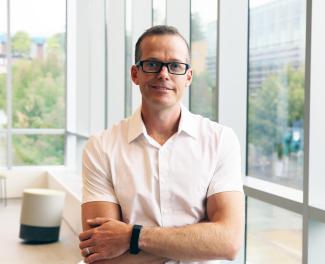
Jonathan Little is Professor in the School of Health and Exercise Sciences at the University of British Columbia (UBC) in Kelowna, BC, Canada. He has published over 150 peer- reviewed journal articles in the areas of exercise metabolism, nutrition, type 2 diabetes, obesity, and immunology.
His Killam Accelerator Research Fellowship has focused on understanding how chronic inflammation develops in conditions of obesity, type 2 diabetes, and aging – and how we can optimize diet and exercise interventions to reduce inflammation and improve overall health. His current work employs his state-of-the art analytical techniques to provide novel mechanistic insight into the pathogenesis of type-2 diabetes and then tests lifestyle changes (e.g., exercise, diet) for their potential to restore the molecular defects contributing to the progression of the disease. This research aims to identify molecular therapeutics as well as non-pharmaceutical interventions to safely improve the health of individuals with type-2 diabetes.
Dr. Katherine Ryan
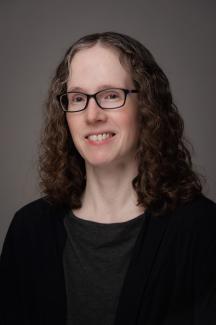
Katherine Ryan is a Professor of Chemistry at the University of British Columbia. She received her Ph.D. at MIT, where she carried out structural biology studies with Catherine Drennan. She then joined Bradley Moore's group as at the Scripps Institution of Oceanography as a Postdoctoral Fellow to study marine natural product biosynthesis. Her independent research group investigates biosynthetic routes to nitrogen-containing natural products, using protein X-ray crystallography as a major tool.
Her research investigates how molecules are constructed in nature. She is a leading researcher in how enzymes catalyze challenging chemical reactions to give unique arrangements of specific atoms. Her work provides fundamental insights into chemistry, enzymology, and biosynthesis, and has applications in biocatalysis, where enzymes replace traditional reagents used in chemical synthesis.
Dr. Leonid Sigal
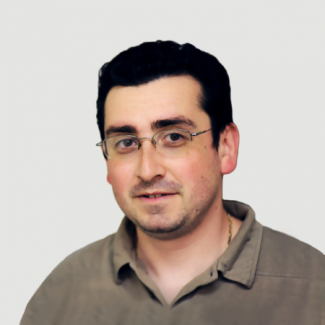
Leonid Sigal is a Professor at the University of British Columbia (UBC). He was appointed CIFAR AI Chair at the Vector Institute in 2019 and an NSERC Tier 2 Canada Research Chair in Computer Vision and Machine Learning in 2018. Prior to this, he was a Senior Research Scientist, and a group lead, at Disney Research. He completed his Ph.D at Brown University in 2008; received his B.Sc. degrees in Computer Science and Mathematics from Boston University in 1999, his M.A. from Boston University in 1999, and his M.S. from Brown University in 2003. He was a Postdoctoral Researcher at the University of Toronto, between 2007-2009. Leonid's research interests lie in the areas of computer vision, machine learning, and computer graphics; with the emphasis on approaches for visual and multi-modal representation learning, recognition, understanding and analytics.
As a leader in Computer Vision — an interdisciplinary field that seeks to gain high-level understanding from digital imagery, his research focuses on building algorithms that can automatically and intelligently recognize, catalog, understand and analyze image and video content, as well as synthetically generate images.

The Killam Research Accelerator Fellowships are offered as part of UBC’s program of scholarships, fellowships and prizes generously funded through the Killam Trusts.